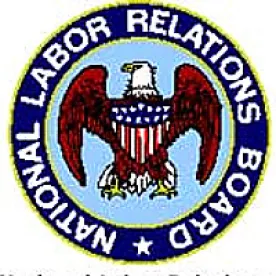In a decision having far-reaching implications, a National Labor Relations Board panel consisting of Chairman Mark Gaston Pierce and Members Kent Hirozawa and Lauren McFerran, (Member Miscimarra dissented) has overruled almost 10 years of NLRB precedent, deciding that a violation of the National Labor Relations Act could be found based on an employer’s failure to inform the union that it did not possess information the union requested, despite the absence of a specific unfair labor practice complaint allegation to that effect.
The Board concluded the employer had violated the NLRA by not informing the union representing its employees in a timely manner that it did not possess information the union had requested about rule and policy changes despite the fact that the agency’s administrative complaint did not include an unfair labor practice allegation to that effect. Graymont PA, Inc., 364 NLRB No. 37 (June 29, 2016). In so doing, the Board overruled Raley’s Supermarkets & Drug Centers, 349 NLRB 26 (2007).
In Raley’s, the Board majority (Member Liebman dissented) ruled that, although the unfair labor practice complaint alleged the employer had unlawfully failed and refused to provide the union with a copy of an investigative report into possible supervisor inappropriate behavior toward two female employees (or a summary of the pertinent findings) the union had sought, “at no time, even after learning that such a report did not exist, did the General Counsel amend the complaint to allege that the employer violated the Act by failing to timely inform the Union that there were no such reports.” (The dissent had argued that the employer violated the Act by failing to timely inform the union that it did not have reports the union had requested.)
In Graymont, an NLRB administrative law judge found that the employer had violated the NLRA by unilaterally changing its work rules, absenteeism policy, and progressive discipline policy. Based on Raley’s, the judge also found that the employer did not violate the NLRA by failing to timely inform the union that the information the union had requested about these changes did not exist because it had not been asserted as an unfair labor practice in the complaint.
The Board reversed. It held instead that the “test” in Pergament United Sales, Inc., 296 NLRB 333 (1989), enfd., 920 F2d 130 (2d Cir 1990), should apply. (Interestingly, the NLRB did not cite or mention Pergament in Raley’s.) In Pergament, the NLRB decided that an unalleged violation may be considered where it is so closely connected to the subject matter of the complaint that a finding of violation would not cause “manifest injustice,” would not constitute a denial of due process, and therefore, would not be prejudicial. The Board held that “Raley’s Supermarkets should be overruled to the extent that it precludes the Board from considering [as in Graymont], an unalleged failure to timely disclose that requested information does not exist when, as here, the unalleged issue is closely connected to the subject matter of the complaint and has been fully litigated.” The Board further explained the complaint “is not the exclusive source of notice of the material issues to be addressed in a Board proceeding” and “notice may also be provided by the General Counsel’s representations at the hearing, or it might be evident from the respondent’s conduct in the proceeding.”
Whether an unasserted violation is so “closely related” to the subject matter of a complaint as to place the employer on notice for purposes of due process has been the subject of Board litigation under Section 10(b) of the Act. In Redd-I, Inc., 290 NLRB 1115 (1988), the Board held that in deciding whether complaint amendments are closely related to charge allegations, it would apply a “closely related” test, comprised of the following factors. First, the Board will look at whether the otherwise untimely allegations involve the same legal theory as the allegations in the pending timely charge. Second, the Board will look at whether the otherwise untimely allegations arise from the same factual circumstances or sequence of events as the pending timely charge. Finally, the Board may look at whether a respondent would raise similar defenses to both allegations.
It is not clear why the Board chose not to apply a Redd-I approach in Graymont. The Pergament standards arguably are more subjective ( “manifest injustice”, “closely connected”, “respondent’s conduct at the hearing”) and may indicate that the Board wants more flexibility than Redd-I accords. Whatever the Board’s motivation, we can expect to see more litigation on this subject in the future.






 />i
/>i

